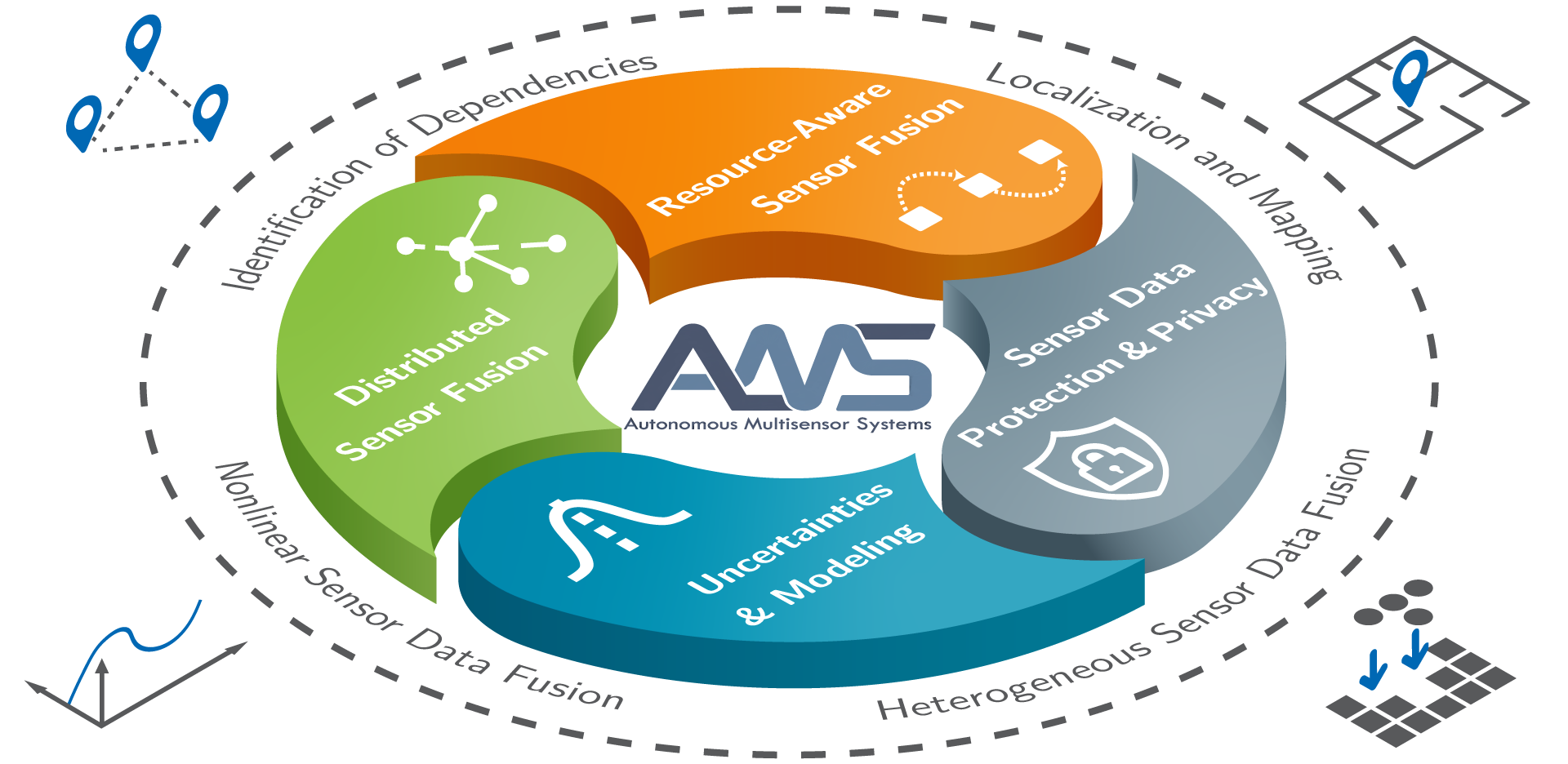Research

Multisensor Data Fusion
Multisensor data fusion is the process of combining data streams from multiple – possibly heterogeneous and complementary – sensors. As a result, systems like autonomous mobile robots benefit from increased data quality and reliability, can estimate unmeasured states, and can cover larger areas with their sensors. Our research includes
- Kalman filtering and nonlinear estimation
- Modeling and uncertainty quantification
- Algorithms for localization, tracking, and situational awareness
- Decentralized data fusion in mobile systems and ad-hoc sensor networks
Resource-Efficient Sensor Data Processing
Mobile sensor systems typically have resource constraints in processing capabilities, battery power, and storage space. Also, communication bandwidth is a limiting factor when multiple systems need to exchange sensor data. Multisensor data fusion can address these limitations by different measures. Our research includes
- Reduced-complexity fusion algorithms
- Adaptive sampling rates and asynchronous processing
- Event-based sensor fusion and estimation
- Quantization of sensor data and estimates
Localization with Mutual Dependencies
Precise localization and tracking of vehicles such as drones or cars is essential for their safe autonomous operation, particularly when they operate in constrained shared spaces and must therefore interact with one another. Decentralized methods for combining information distributed across several vehicles and exploiting mutual dependencies are beneficial in such scenarios. Our research includes
- Optimization-based state estimation
- Utilization of mutual dependencies
- Decentralized optimization algorithms
- Spatially distributed measurements
Privacy-Preserving Data Fusion
With the advancements in distributed algorithms and cloud computing, the reliance on public communication channels and untrusted participants has stressed the requirement for data privacy. Privacy-preserving data fusion presents methods for increasing participants' data quality in distributed environments while keeping their sensitive data private. This includes private state estimates, exact measurements and fixed locations. Our research includes
- Privacy-preserving distributed localization
- Homomorphic and functional encrypted cloud data fusion
- Cryptographic privileges in estimation
- Quantifiable data fusion leakage




